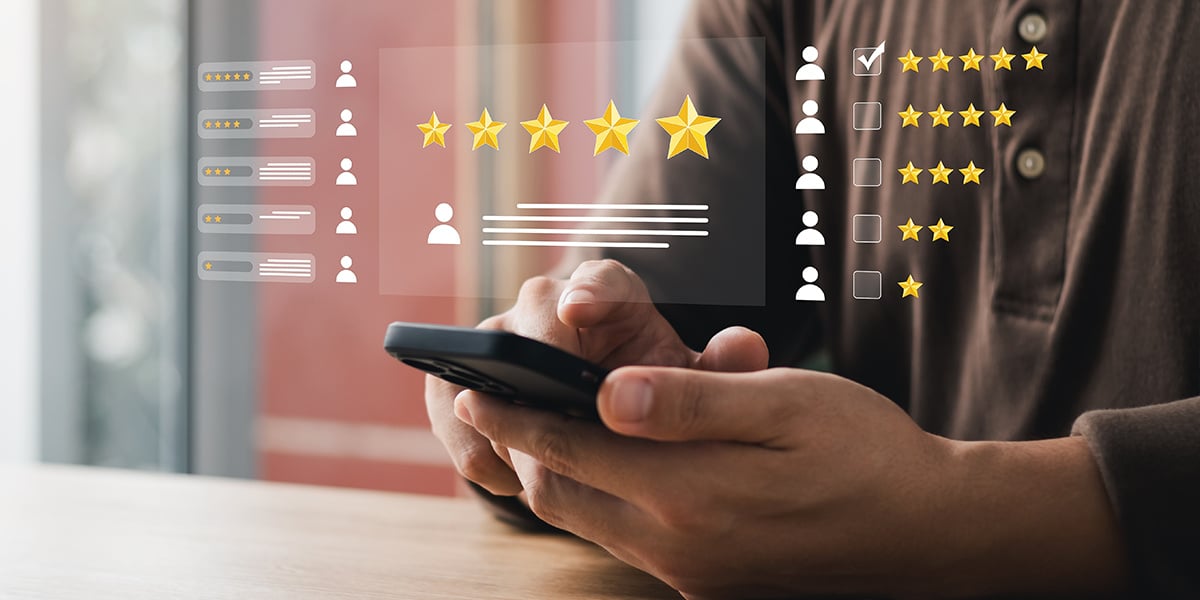Countries around the world have started using COVID-19 passports for international travel. Some of them use it domestically. What does it mean for businesses? Will pubs require vaccine passports from their customers? Valentina, Simon and Lawrence discuss the pros and cons of this certificate.
Episode 40
Episode Summary
Foreign governments are slowly opening borders and taking strict safety measures. One of these measures is the Vaccine Passport which is any form of a certificate that proves the person holding the passport has been COVID-19 vaccinated. As ACF Technologies supports the COVID-19 vaccination programme in the UK, the directors decided to comment on the current situation. The below list shows the points that were discussed in the episode.
Pros
- A faster way to go back to normal Not only the vaccine could act as an incentive to encourage people to vaccinate but it also offers work and travel opportunities.
- Protection Issuing a certificate could help reduce the risk of infection.
Cons
- Unclear guidelines Countries build their own versions of COVID-19 vaccine passports. However, if every country has a different form of certificate, which institution will decide the standard?
- Fraud The moment governments decided to develop these documents, hackers from dark web started issuing fake certificates.
- Societal division People who do not wish to get a vaccine could be eventually permitted from attending certain events or using hospitality services. Such a situation could result in vaccine apartheid.
This article summarises podcast episode 40 " The Vaccine Passport Dilemma" recorded by CX Insider. For more information, listen to the episode.
Written by Valentina Svobodova
Full episode transcript
Valentina: In this episode, I invited Simon and Lawrence to talk about covid passports. We discussed the pros and cons of the covid certificates how this might affect your customers and their experience. If you like this episode, please let us know on LinkedIn or any of your preferred platforms. And don't forget to subscribe to the podcast if you haven't done it already. Hello, everybody, and welcome to another CX Insider podcast episode. This is Valentina speaking, and today I am joined by Simon and Lawrence. Simon is our regular co-host and he appeared in our latest episode about A.I. customer feedback. Make sure you check that out. And some of you may know Lawrence. He joined our February episode dedicated to covid-19 Vaccine booking system. And as a matter of fact, today, we're also going to talk about vaccine, but in a slightly different context, and that is vaccine passports, a super hot topic at the moment. And our ACF team felt the urge to discuss what this is all about, where this is all going, and most importantly, how this is going to affect your customers. But before we dive deep into the topic, I'll share some key information for some of you who are not managing to keep up with the latest updates, which is frankly quite understandable, because decisions on this topic change every every day. So covid-19 vaccine, passports, what is it? You may you may hurt it under different names like green peppers, travel pass, covid statis certificate, digital green certificate.
Valentina: It is essentially the same thing. Maybe the word passport might be slightly misleading because it is not really a passport, but it's a it's some kind of cool with health certificate. It's a proof that it's showing whether the person who owns the passport has been vaccinated and or if not, whether the results of the latest covid-19 test is to allow you to freely travel to different countries safely. Now, what is the current situation? The European Union agreed that the certificates are needed and some countries, just like Iceland, for example, is going to is planning to open its borders tomorrow. Twenty six of March to all people, to all travelers who are who have been vaccinated. And Poland, for example, started issuing these certificates. Sweden, Denmark, Estonia are developing these certificates now. What's the situation in the UK? We don't know just yet. It's being discussed every day. And but we are sure that there will be at least some form of certificate passport that will at least allow us to travel to different countries. We don't know whether it's going to be used domestically. We're going to talk about it, for example, like Israel that's already using these green pass for domestic use. So, gentlemen, Simon Lawrence, what do you think about all of that? You've got thirty seconds. Remember, it's a short episode, so you've got thirty seconds to do to express your opinion. Starting now,
Lawrence: Simon. Go ahead.
Simon: Yeah, thirty seconds. OK, I think actually a lot of what you just said, Valentina, is where for me some of the first problems sit in. Every country is doing their own thing at the moment. And how does that become an international standard to actually allow you to travel? You know, I think that needs to be a bit more of a global approach to it because. Because it is quite important, isn't it? Because obviously there's pros and cons. Obviously, my belief the so I'm on defence if I'm going to be completely honest, because I think the cons against this kind of passport are kind of ones that are evident from not enough kind of due process or rules or restrictions or guidelines in place at the moment to to manage it because, you know, employers could start restricting staff going into offices if they don't have the vaccine. And and restaurants and venues and and entertainment events could restrict you from going in when in reality there may well be an underlying reason as to why you haven't had the vaccine. You might have an allergy to it or something. So you're kind of. Eliminating the ability for a certain group of people to be able to do certain things, but just roughly on November 30 seconds now the pros, I think the pros in the long run are worth it, because I think this is moving much more towards that kind of data analysis, that idea of having more data about individuals and us accepting the fact that maybe a health passport will exist for us to kind of analyze that data, prevent future pandemics, prevent travel out of certain areas where we can see kind of viruses coming about. So, yeah, I do. I'm still on the fence. I'm undecided. Maybe Lawrence can change my mind. I'm not sure
Lawrence: Yet. Obviously there are pros and cons to this and it kind of mirrors the whole covid situation as a whole. covid has been a very dividing period for everybody, really. You know, lots of different aspects around the effect of covid conspiracy theories going around mistrust as well as, you know, a sense of community and people coming together at two opposite ends of the spectrum. And we've seen all of those things come into play over the last year. And I think that will continue into the discussion of vaccine passports. A lot of people probably don't realize the vaccine passports is already a thing, so if you need to travel to various countries in Asia or Africa, you will be required to show that you have had vaccination, certain things like yellow fever. Polio, typhoid, bozo's and hepatitis cholera, you have to have to demonstrate that you have had a vaccination for those things. So there's no reason technically why that sort of thing shouldn't continue for other easily transmissible infections, such as covid.
Valentina: Yeah, that makes sense. And I guess but now you are talking about very specific and maybe small amount of countries. But if we talk about the whole world, every country in Europe is now developing its own certificate. How would you create a safe, secure certificate? It may be quite tricky in other countries. Don't even know whether it's going to be on paper. Is it going to be an app? Is it safe?
Simon: And one that can be internationally validated as well? Venancio.
Valentina: Exactly.
Lawrence: Yeah, that's a good thing. But then we're able to internationally validate passports and international I.D. driving license. It's not beyond the reach to be able to come up with. It doesn't have to be every country adopting exactly the same standard or form of vaccination passport. But it will it will quickly get adopted or recognized that there are a few different variations going around. Obviously, that leads to open to things up, forgery and things, but passports and stuff get forged anyway.
Valentina: Yeah, that's true. Maybe the question is how fast how efficiently can can it be created? Because I already see articles that people buy passports on dark web apps and. Oh yes, there is there's a risk of of of the fraud. But what about what about privacy? For example, Lauryn's, you told me yesterday. Yeah. I think it was that you were you had some concerns around that.
Lawrence: Yeah. So as I mentioned at the start of this, I think this whole pandemic has highlighted a kind of recent divide in society. I don't want to get too political about it, but you have had all the cases of people being anti-vaccine, anti-mask, denying that covid was even a thing. And then obviously the other end of the spectrum, where you've had everybody pulling together saying, let's work together as a community to try and beat this thing. Now, obviously, those things are probably going to persist into privacy concerns. Am I being tracked? Why should I let the government know about my vaccination status while actually I know a lot about you anyway, so it doesn't really matter. But probably more pertinent is where does it stop? We've never had anything, to my knowledge, anything like this in the UK. I don't think there's really many countries in Europe who have vaccination requirements for travel. So it could be a very slippery slope. Where does it stop? If you if you if you had a covid vaccination passport, what if you say, actually, I don't need one because I've got certain health concern or I have a religious view that I don't get the vaccination or some other thing that affects whether you should have it that now becomes publicly available. So where does this information stop? And that's going to be the challenge going forward?
Simon: I think it will, because obviously as well. Just to move on from what you said there, Lawrence, obviously that the UK laws, employment laws are in place and have been developed to protect employees and employers effectively, haven't they? But of course, in that process, then as as a potential employee, you legally do not have to declare certain aspects of your life, quite rightly, to prevent discrimination in that in that arena. You know, if you're going for a job and you've got mental health issues and all of that comes about as well, if that data is public around you or your health to a certain degree, does that allow for discrimination against you? I think there's so much more to consider, isn't there, as well? And we've been so.
Lawrence: Yeah, of course, and it's the same thing with people not wearing masks because of certain medical restrictions, where do you where do you draw the line as to whether that is a valid reason for not wearing a mask or not? And the same thing will go into where do you draw the line for whether you should get a vaccination or not? And maybe certain countries won't be too fast about having a vaccine passport for covid and other countries will want to have that vaccine in place. So it gets very mixed. Now, when you start saying, well, actually, I'm exempt from having the vaccine because of such and such a situation or whatever. How do you validate that? How do you validate that? How do you have that signed off by a an authorizing body to say, yes, this person is not just saying it, they've actually gone through some sort of check and balance to validate the reason why they're not having the vaccine is a valid reason, internationally agreed or whatever it is,
Simon: And to make that effective for international travel. Every country needs to have the same regulations and guidelines that need to be in alignment.
Lawrence: Yeah, exactly.
Simon: Well.
Valentina: Husbands do offer opportunities for people who would like to work abroad, you know, and this will allow them to or it maybe work as an incentive, maybe it will encourage people to get the vaccine. But there are like very big risks of fraud certificates and dark web privacy, as Lauren said. And then discrimination is that was being said as well. For example, if we issue if we start issuing passports and OK, my friend who lives near Birmingham already got to get a text message saying that she could and she's twenty five years old and she could get a vaccine. My friends living in the Czech Republic who are the same age will probably get the vaccine next year because it's that bad of the minute.
Lawrence: So, yeah, exactly. And we know that there are quite a few countries in the world that have extremely limited supply of vaccinations moment because it's such a new thing. How long that will last for eventually. Hopefully they will get the required coping covid vaccine supply, but they might not some of the poorer countries might not get much at so
Simon: And then with. Yeah, obviously with looking at the capability of the country, of traveling to to support you, should you fall ill, are we going to have kind of medical assessments before you leave? You're going to have to be validated 24 hours before to check. You're in a healthy state to travel to a certain country. And if you're not, it depends what you've got, whether they've got the capability to support you medically when you get there. I mean,
Lawrence: You bring up a really good point there as well, Simon, about being checked before you travel. We don't know about the longer term aspects of covid and variation either. Flu, for example, has so many different variations that you can end up requiring annual flu jab.
Simon: Well, I think that does exist in the medical world. I think doctors do annually have to have I think it's hepatitis every year. So they have to and it has to be registered and looked at. They have. So these things do exist in certain roles and positions.
Lawrence: So we might we might it might turn out that covid is a similar sort of thing that you end up having. It becomes more of a norm of society to have your annual covid job. And therefore, we now need to check. Have you had the latest updated version of covid vaccination, who knows into the future with so many unknowns that. Are we taking a gamble, introducing this vaccine passport or are we being preventative?
Simon: Well, at the moment, the U.K. government petition website that the petition to have a vaccine passport is over three hundred thousand and position to not rule one out is is just 5000.
Lawrence: So very interesting. It would be very interesting to see if there's statistics from other countries because we know that this country has been very accepting of the vaccine and we've had an extremely fast rollout and there hasn't been particularly much pushback against having the vaccine or denial of that sort of thing, has not been too much conspiracy stuff floating around some other countries you've seen for great divides. And therefore they might push back on having a target vaccination passport much harder.
Valentina: You know, you're absolutely right, Lawrence. We're slightly over 30 seconds, so quickly respond to what you were saying. You're absolutely right. I was actually just reading an article about it yesterday that at the beginning of the vaccine rollout in the U.K., I think over 60, around 60 percent of the British population were pro vaccine that comparing to the service being done in the Czech Republic. And I talk about every picture because I come from that country, it was around 30 percent, 30 percent was wanted to get a vaccine. Everyone else was against it. Now, what do you do about it? And there is an extreme distrust in the in the government, in the
Simon: That does move to politics, doesn't it? Because that is so interesting how every country has got a different kind of opinion from the general public based upon the information that's being given to them.
Valentina: There was this article that was published, a BBC article was published two hours ago, actually, it was about it was a summary of what was said at Wednesday's House of Commons liaison committee hearing. Conservative and now I'm quoting conservative William Wragg. Ask Boris Johnson if vaccine certificates were compatible with a free society such as ours. And Boris Johnson said that the concept should not be totally alien to us, as doctors have already have to have hepatitis B. And Mr Wragg then asked, what about ordinary citizens going to the pub? And Boris Johnson said, That's the kind of thing that may be up to individual publicans. That's that's a heavy burden and now because many of our listeners are decision makers in different organizations and now we're talking about hospitality, restaurants, pubs, but many other different types of businesses, should this decision be on the on the directors of their organizations, on the CEOs and pub owners to to to force us to want this from their customers?
Simon: I think there's that kind of dream, isn't there, there where I think Burris's is commenting that employers have a responsible kind of approach to their customers and their staff. So it's their decision based upon how they want to protect their workforce and and their customers. But I think that does, as we all know, leave it open to abuse where some employees simply don't care and won't profit margins over safety. So it won't work in all instances. Will it clearly not operate?
Valentina: It's crazy because it doesn't really it just puts the burden on a different authority, you know, and it will create a huge division among customers who just want to go to a pub and have a beer and they can't.
Simon: Yeah, that is it. And then the other side of it is this is the government imposing more rules around what we do and how we do it. You know, as a customer, as a consumer, if you're not happy walking in somewhere, they simply don't walk in, find somewhere else. I mean, that's quite a simple view of it. But again, I think is a minefield of unintended consequences at the moment. And I don't think we've kind of analyzed all of the potential outcomes of passports and guidelines and restriction.
Lawrence: We've been talking about vaccine passports from the perspective of being a passport travel. And obviously, we've heard today about the pubs being required to accept a vaccine possible of some sort. It's only been discussed about pubs and restaurants at the moment, but this may expand into other areas, what will be the consequences of different industries wanting to adopt a vaccine, possible or not?
Valentina: Yeah, I think it's the same thing about masks at the big at the beginning of the pandemic, because I think in the UK it wasn't mandatory right at the beginning. They just lifted up upon the different business owners. So whether they want their customers to wear masks and this might be a similar situation, but much, much worse because you either wear a mask or not about forcing someone to have a vaccine in order to have a coffee.
Lawrence: Yeah, I don't I don't I don't think it's forcing someone to have the vaccine to get a coffee. I think it's forcing someone to carry a piece of documentation showing that they have had the vaccine.
Valentina: Yeah, you're right. I exaggerate.
Lawrence: And that's the thing. I think people will. Have more objection to than just having the vaccine, having the vaccine is conscientious, you're helping society, those sort of things. And I think most people in this country at least, are in agreement with that. Obviously, there is a flip side, people objecting to it for specific reasons, but carrying a documentation with you that may be centrally held, coded, could be vulnerable to hacking as well as maybe reasons why you have exempted from it. That is a far deeper topic that would need analysis.
Simon: Well, the only reason I had the vaccine was because Boris said that you might not be allowed in your local pub. So I think that says more about me, but maybe they should. I like I like the WhatsApp messages that go round. You're in lock down. If they just put the covid vaccine in alcohol and then is up and perhaps the problem will be solved within a couple of days, you know.
Valentina: So we're getting to the end of the episode and to close this episode a bit and conclude on the things that we have discussed. Lawrence, how do you think that these passports could be actually done effectively technology wise?
Lawrence: Being that we are in the age of modern mobile technology, the first thing I see is that there would be some sort of mobile application, maybe integrating with Apple passport or Android passport, where you can quickly display on your phone a relative, the relevant vaccination, passport approval, whatever it might be that may already exist for other vaccine requirements. I don't know it. I've not looked into it. How you get non-technical savvy people to adopt that is more difficult. You would have to start having a paper copy that some sort distributed. It gets a little bit more challenging. What I haven't heard mentioned by the government is who or what authorizing body would actually create and distribute these vaccine. Would it be a centralized thing where you have lots of independent companies offering the of offering these certifications and therefore lots of different courses that. Yes.
Valentina: All right. Thank you, guys. Thank you guys for joining this episode today.
Simon: Thanks.
Valentina: Thank you for listening to this episode. I hope you liked it. If you did, let us know. And on behalf of the entire CX inside a team, we wish you a happy Easter.







